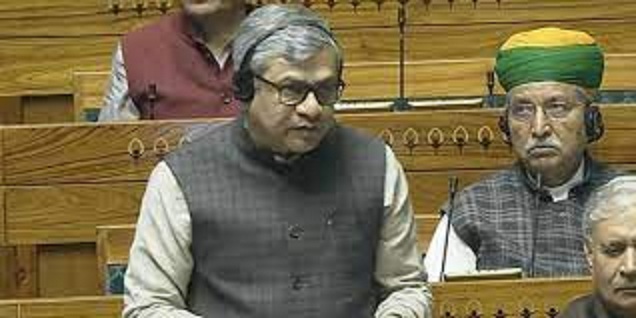New Delhi: The Union government introduced the Telecommunications Bill 2023 on Monday, in a move to replace the 138-year-old Indian Telegraph Act that governs the telecom sector. IT Minister Ashwini Vaishnaw tabled the telecom bill in the Lok Sabha after it had received the Cabinet’s nod in August.
The proposed legislation will allow the Union government to take over control, manage or suspend any telecommunication services, networks, or their components linked to such services, citing national security.
Similarly, the proposed legislation also provides the government with the authority to instruct that certain messages—sent or received by specific individuals, through particular telecommunication equipment, or related to specific subjects—should not be transmitted to “protect India’s sovereignty, integrity, and national security.”
Alternatively, such messages may be intercepted, detained, or disclosed in an “intelligible format” to the designated officer, as directed by the government’s order.
The draft legislation reads: “On the occurrence of any public emergency, including disaster management, or in the interest of public safety, the Central Government or a State Government or any officer specially authorised in this behalf by the Central Government or a State Government, if satisfied that is necessary or expedient so to do, by notification– (a) take temporary possession of any telecommunication service or telecommunication network from any authorised entity, or (b) provide for an appropriate mechanism to ensure that messages of a user or group of users authorised for response and recovery during a public emergency are routed on priority.”
The draft Telecommunications Bill released in 2023 had proposed to bring over-the-top or internet-based calling and messaging apps under the definition of telecommunications to enhance users’ safety.
The bill had also proposed to curb the power of the Telecom Regulatory Authority of India (TRAI), on which industry players had raised concerns.
According to government officials, the issues around over-the-top players and TRAI were resolved before it was cleared by the Cabinet. The draft had proposed to ease some of the rules like a refund of fees for licence, registration etc. in case a company surrenders its permit.
The new bill proposes the government be vested with the power to waive off entry fees, licence fees, penalties etc. in the interest of consumers, ensuring competition in the market, availability or continuity of telecom networks, and national security.






